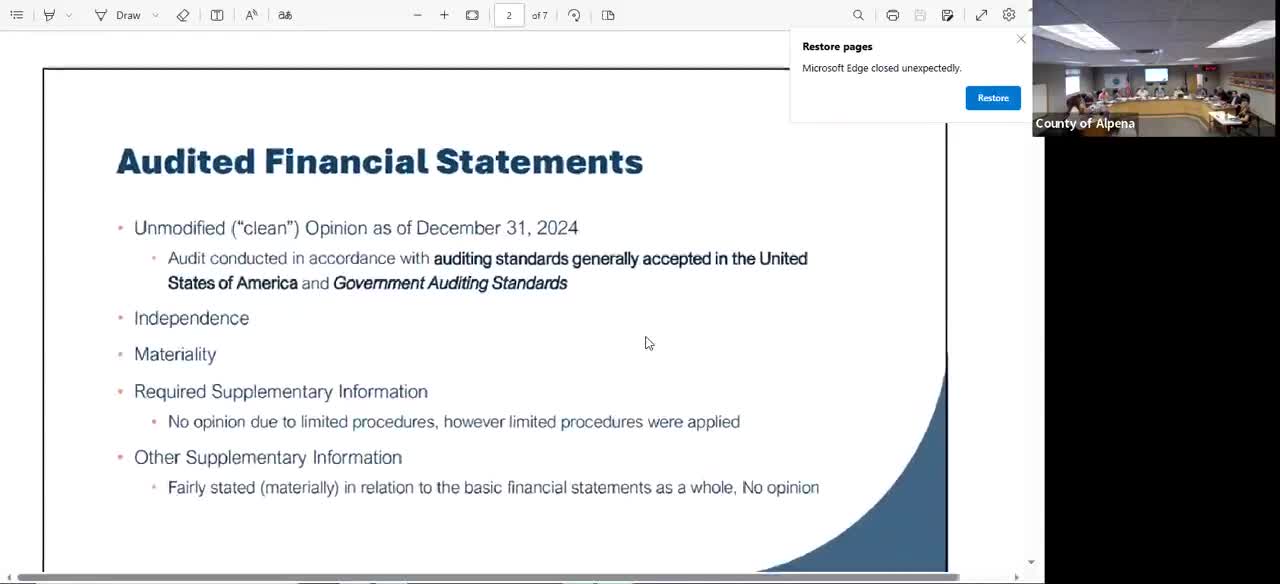Article not found
This article is no longer available. But don't worry—we've gathered other articles that discuss the same topic.

Votes at a glance: Alpena County moves on grants, vehicles, trailers, radios and a Girl Scout project

Alpena County board receives unmodified fiscal 2024 audit; auditors flag internal-control items

